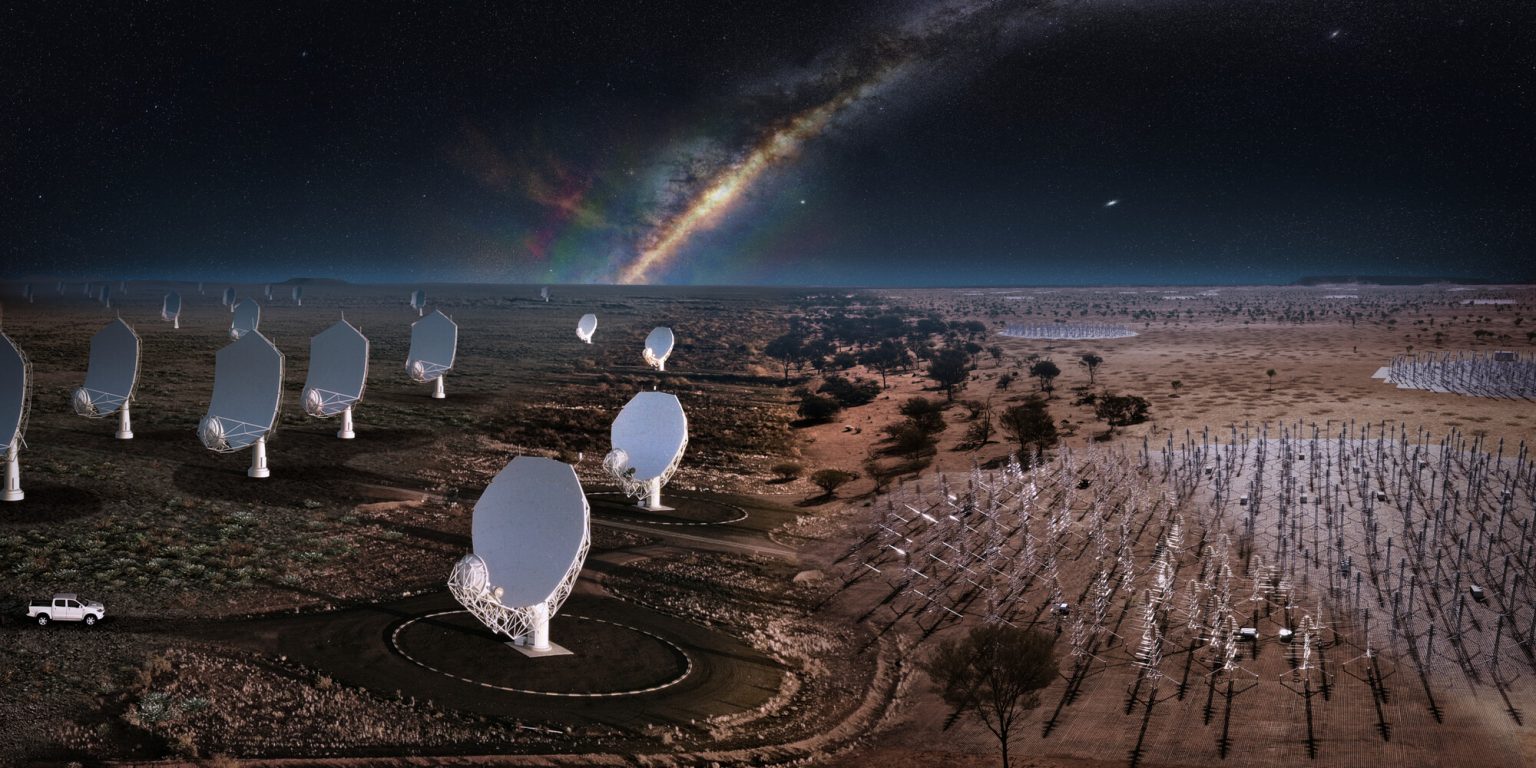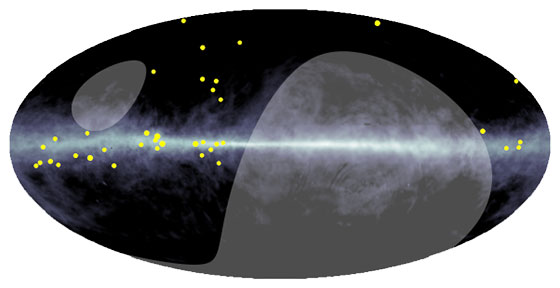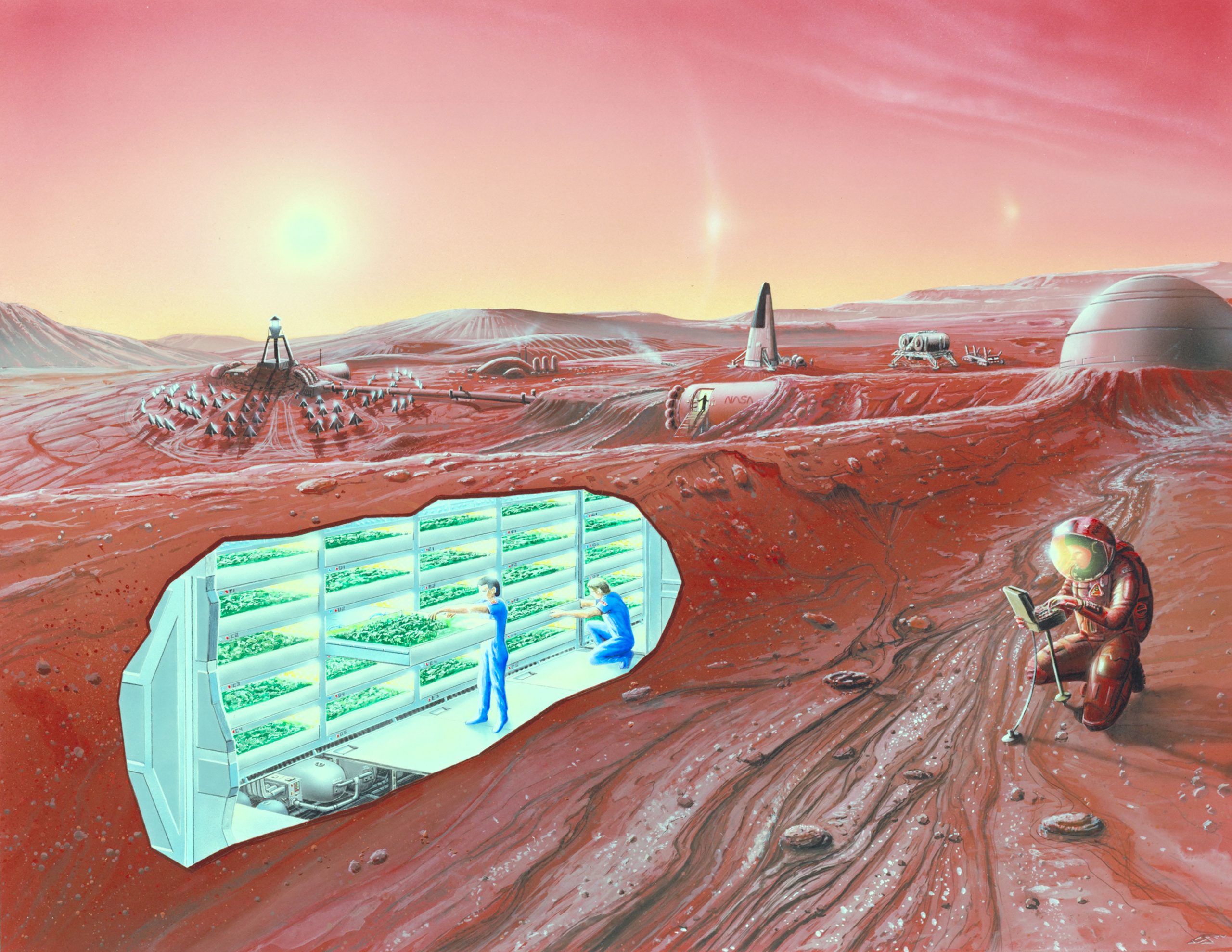Podcast: Play in new window | Download | Embed
Subscribe: RSS
Last week we talked about how new telescopes and techniques are allowing astronomers to explore the shortest wavelengths of light. This week, we go to the other end of the electromagnetic spectrum, and explore the longer radio waves which are now accessible to astronome…














